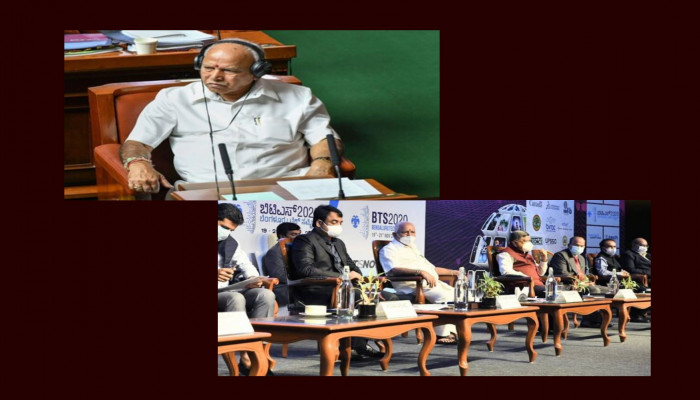Karnataka eyes $3 billion investment in space tech ecosystem with new policy draft
- In Reports
- 10:46 PM, Nov 20, 2024
- Myind Staff
The Karnataka government has set an ambitious target of attracting $3 billion in investments into the state’s burgeoning space technology ecosystem, according to the executive summary of the draft Karnataka Space Technology Policy 2024-29, unveiled during the Bengaluru Technology Summit on November 20.
The policy summary, reviewed by Moneycontrol, outlines several key initiatives aimed at fostering growth and innovation in the sector. A significant highlight is the establishment of a space manufacturing cluster, which will be developed under a Public-Private Partnership (PPP) model. Additionally, the government plans to create common testing facilities accessible to both private companies and public organizations, enabling smoother operations and greater collaboration within the ecosystem.
Further, the draft policy emphasises support for startups and micro, small, and medium enterprises (MSMEs). The government aims to assist 500 such entities through a combination of grants, equity funding, and subsidies. These incentives will focus on critical aspects such as intellectual property (IP) registration, testing, and quality certification, helping these businesses enhance their standards and competitiveness.
While the full text of the policy is yet to be made public, the initiatives outlined in the draft reflect Karnataka's commitment to cementing its status as a leading hub for space technology in India.
As part of its vision for the space technology ecosystem, the Karnataka government aims to facilitate the development and launch of over 50 satellites, showcasing its commitment to advancing India’s space capabilities. Furthermore, the policy emphasises skill development, with plans to train 5,000 students and young professionals—1,500 of whom will be women—equipping them for employment opportunities in both domestic and global space sectors.
In addition to these initiatives, the draft policy outlines a digital public infrastructure approach to encourage the widespread adoption of space technologies across various industries. By leveraging this strategy, the government seeks to drive innovation and expand the practical applications of space technology in areas such as agriculture, disaster management and urban planning.







Comments